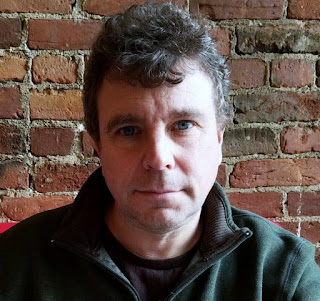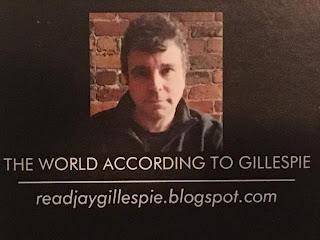FROM WOODSTOCK TO SCITSTOCK
This column originally appeared on Wicked Local.
“All things must pass,” read the announcement from Scitstock host and co-founder, Bill Barton, quoting George Harrison to announce the end of the anticipated musical tradition nestled in the small coastal town of Scituate, Massachusetts. “Over the years, we have had the most glorious good fortune to have amazing artists volunteer to perform for us, all in the spirit of Peace & Love, and the vibe has been indescribable.”
This column originally appeared on Wicked Local.
“All things must pass,” read the announcement from Scitstock host and co-founder, Bill Barton, quoting George Harrison to announce the end of the anticipated musical tradition nestled in the small coastal town of Scituate, Massachusetts. “Over the years, we have had the most glorious good fortune to have amazing artists volunteer to perform for us, all in the spirit of Peace & Love, and the vibe has been indescribable.”
Scitstock has been a Scituate celebration of peace, love,
and music for the better part of the last decade as was its more notable
predecessor, Woodstock, more than 40 years ago.
Ok. This local event is shorter,
usually far less muddy, and largely witnessed by crowds of people who are, in
some cases, old enough to have been at the original Woodstock, meaning the
predominant illicit drug passed through the crowd on this particular night may
have been Geritol. Scitstock, however,
still proved to be (in the words of John Lennon) a happening.
By the time I arrived, local musician Pete Morin had already
warmed up the crowd and Texas bluesman Willie J. Laws was on stage. He had come all the way up from Corpus Christi
to play the event. Willie played a
gritty set, announcing that some of his original tunes were “currently being
recognized in the Czech Republic and parts of Africa, but we just don’t know
where.”
I made my way up to the back porch of host Bill Barton’s
expansive farm house. This gave me a
clear view of the stage, and also enabled me to look over a sizable crowd. I was approached by Scituate resident, Dee
Casey, who commented on the size of the crowd but claimed to remember past
years when “they had two stages it was so large. It’s really tame this year with everyone
sitting in rows. I have seen it much
bigger,” said Casey, but quickly warned, “More people will come in.” She was right.
I exchanged a few quick words with local music legend Chuck
McDermott, who is currently touring the country in support of his new album, Gin and Rosewater, but came back to New
England to take part in Scitstock – an event that he helped to kick off a
decade ago. I asked Chuck how his new
album was doing. “Better than expected,”
he said with a good natured laugh, “and that’s all you can ask for.”
McDermott then took the stage with his band pounding out
songs from Gin and Rosewater joined
by Andy Bergsten on mandolin. McDermott
amped up the crowd with spirited versions of Belvedere, Red Betty, and
a haunting rendition of Girl from St.
Lucy from his new album.
“This is amazing! I
couldn’t believe it when I saw all the cars.
And for something outdoors, the acoustics are amazing,” said Patrice
McInnis, standing in awe on the crowded back lawn.
And then came the final scene. Bill Barton stepped forward on stage as his
band, Billy and the Goats, finished setting up.
“This is the final Scitstock – Peace, Love, and Music!” announced Barton
with a measured degree of emotion. “We’re
honored and privileged to have been able to do this.” As the Goats completed their sound check,
Barton’s wife, Juliet, stepped forward to say a few words. She first introduced her husband, Bill,
leader of the band. “He is the love and
light of my life. It was his inspiration,
his motivation that created Scitstock along with Chuck McDermott, Andy Bergsten,
and drummer Preston Hoffman in 2009 – the 40th anniversary of
Woodstock.” Then Juliet humorously
reflected on the event, “This has allowed me to be a cool kid for some of the
only days of my life,” she said earning a supportive laugh from the crowd.
Billy and the Goats played out the night and the subsequent
end of Scitstock, weaving through classics like Turn, Turn, Turn by the Byrds, Lucy
in the Sky with Diamonds by the Beatles, and Sunny Afternoon by the Kinks.
Ever the talkative stage presence clad in his black beret, Barton shared
a story with the crowd of a past gig that Billy and the Goats had played at an
assisted living facility during which a woman relegated to a wheelchair who was
barely able to lift her head wheeled herself forward with great effort to face
the band and yelled, “More Kinks!”
Prophetically, Al Aronowitz referred to Woodstock as an ending rather than a beginning in the
New York Post in 1969 meaning that, in some ways, Scitstock might have represented
a glimmer of Woodstock’s last flickering light.
“I’m so sad that they’re not going to do this anymore,”
lamented Scituate’s Dee Casey.
“We wanted Scitstock to go out with a cosmic bang,” says
Bill Barton, whose efforts were in large part an enormous success. Scitstock provided “Peace, Love, and Music” by
musical folks, many who experienced Woodstock firsthand and, to our good
fortune, will not let us forget.




Comments
Post a Comment